What Is Core Sync?
Core Sync is a crypto mining Trojanized app. Its process is designed to have a different name, in order to conceal its operation. If the process is found in a hidden library, then it is malware that got there without your permission and will mine cryptocurrency for somebody else’s benefit at the expense of your computer resources. Core Sync Trojan will use exhaustive power consumption, and near 100% CPU utilization, so it is in your best interest to remove it.
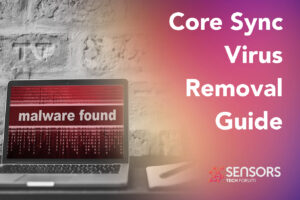
Core Sync Summary
| Name | Core Sync (known as CoreSync.exe on Windows devices and Core Sync on Mac). |
| Type | Trojan Horse, Miner Malware |
| Short Description | The Core Sync is a cryptocurrency miner type of malware that is probably put in your computer system via a Trojan horse and without your permission. |
| Symptoms | You will see a rise in the usage of your computer’s resources like CPU (mostly), RAM and possibly GPU, while your PC or Mac will accordingly consume more electric power and may even overheat. |
| Distribution Method | Freeware Installations, Bundled Packages, JavaScript |
| Detection Tool |
See If Your System Has Been Affected by malware
Download
Malware Removal Tool
|
| User Experience | Join Our Forum to Discuss Core Sync. |
Core Sync Trojan – Why Do I See It?
The Core Sync Trojan can spread in a few ways. Third-party installer setups could have put a Trojan horse on your computer system via bundling. These installations typically arrive with freeware and application packages.
Core Sync – How Did I Get It?
Without you knowing, additive content could be installed to your computer, which could even be a JavaScript file that downloads the actual malware. Avoiding such installations is possible if you find Custom or Advanced settings in the install setup.
Core Sync can also spread if you come across unknown websites through redirects and advertisements which have some sort of scripts in themselves and load them when you visit a site or click on an advert. Pop-ups, pop-unders, as well as banners could have links inside of them that can redirect you. When visiting such websites, especially with an unknown origin, they could inject the malware inside your computer device. That can happen via any browser.
Core Sync Trojan – What Does It Do?
Core Sync is the name of a crypto miner Trojan horse. The genuine CoreSync file is a software component of Adobe Acrobat by Adobe. CoreSync stands for Core Synchronizer. If the location is someplace else, the process might be made to look like a regular Windows or Mac process and be the Trojan miner. The miner process is related to the Core Sync Trojan and will take a huge portion of your computer’s resources. Also, CoreSync.exe Malware Utilizes 100% of the CPU of Windows Servers as we have already pointed in a news article two weeks back.
Is Core Sync Using Significant Energy?
Core Sync’s process is a Monero cryptocurrency miner that uses the Processor (CPU) resources, causing constant freezing and crashes related to the graphics and related drivers. This malware can exploit Windows OS or macOS processes.
The Core Sync virus is not vastly detected by most software, but might still be stopped due to heuristic detections caused by the code of the malware.
The Core Sync malware is dropped to the systems when the malware authors manage to brute force the login credentials of the targeted servers. A successful attack leads to an infection with this Monero (XMR) miner modification, which supports and utilizes several evasion techniques and anti-detection mechanisms.
Is Core Sync a Virus?
Very likely yes. This threat is not a system file and not related to your device, but could tamper with its processes and install and change various files in a Mac or Windows Operating Systems.
This malware is highly likely to download some additional components that will aid it to achieve its purpose to full effect. Thus, after it being executed on the system, it may establish a remote connection to a command and control server where all other malicious files are available.
Is Core Sync Dangerous?
Core Sync will probably only mine the Monero cryptocurrency as it has been designed to do just that. While doing so, a lot of computer resources can be used up, including an increased usage in CPU, RAM (maybe even GPU) and electric power consumption. It is highly recommend that you remove the malware threat, because it can degrade your system’s lifespan. Not to mention that Core Sync asks for your password and may temper with your device’s hardware as well. This might cause your computer to overheat and crash frequently.
How to Protect Yourself
Below you can see some useful tips that can help you to prevent similar miner malware to install onto your device, in the future:
- Run programs inside a sandbox environment
- Install an advanced anti-malware protection
- Update your mostly-used programs and software in general
- Update your OS with security updates
- Install an ad-blocker application
- Be wary around your e-mails and don’t open them unless you know the source
- Disable macros in Microsoft Office Applications>
- Disable JavaScript
- Keep your firewall ON
Remove Core Sync Completely
To remove CoreSync.exe Trojan manually from your computer, follow the step-by-step removal tutorial written down below. In case this manual removal does not get rid of the miner malware completely, you should search for and remove any leftover items with an advanced anti-malware tool. Such software can keep your computer secure in the future.
- Windows
- Mac OS X
- Google Chrome
- Mozilla Firefox
- Microsoft Edge
- Safari
- Internet Explorer
- Stop Push Pop-ups
How to Remove Core Sync from Windows.
Step 1: Scan for Core Sync with SpyHunter Anti-Malware Tool
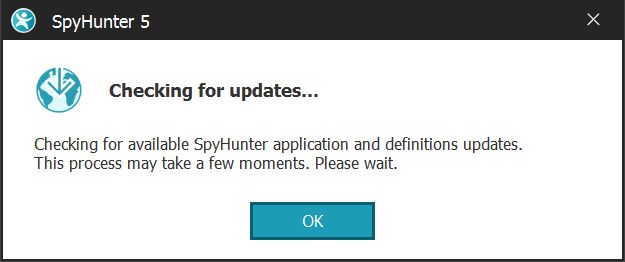
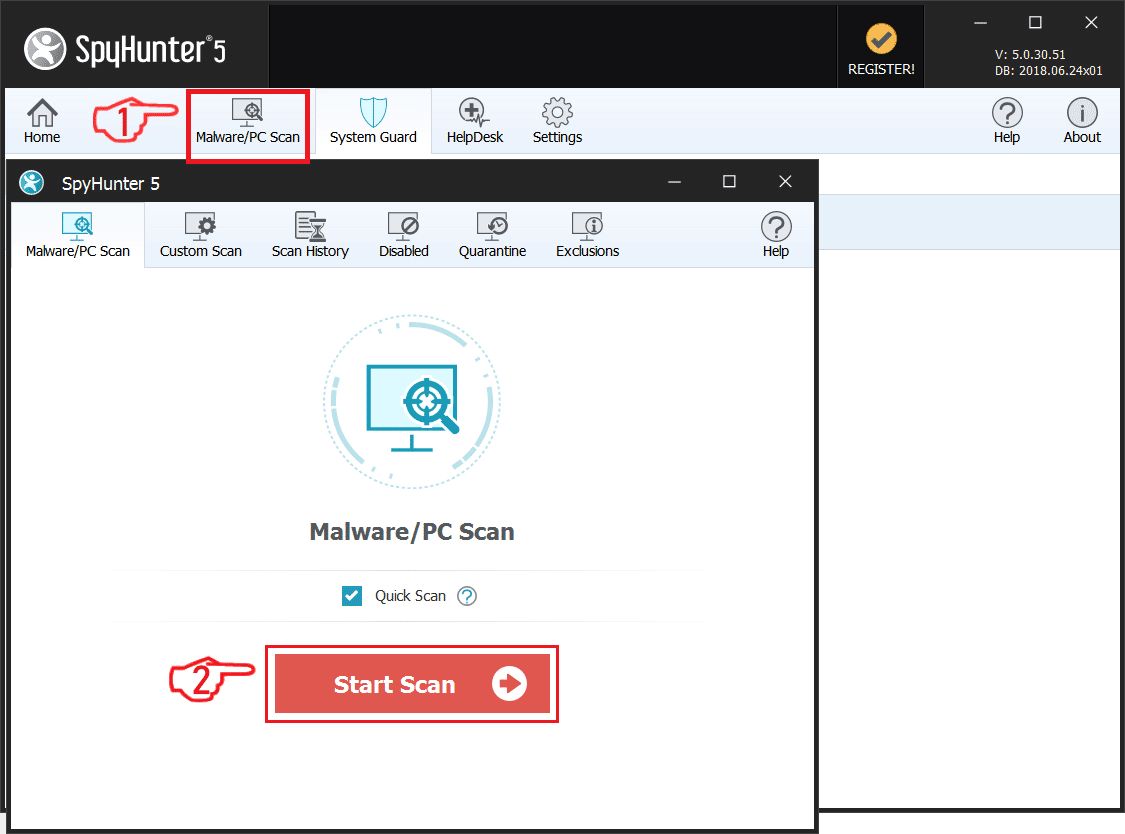
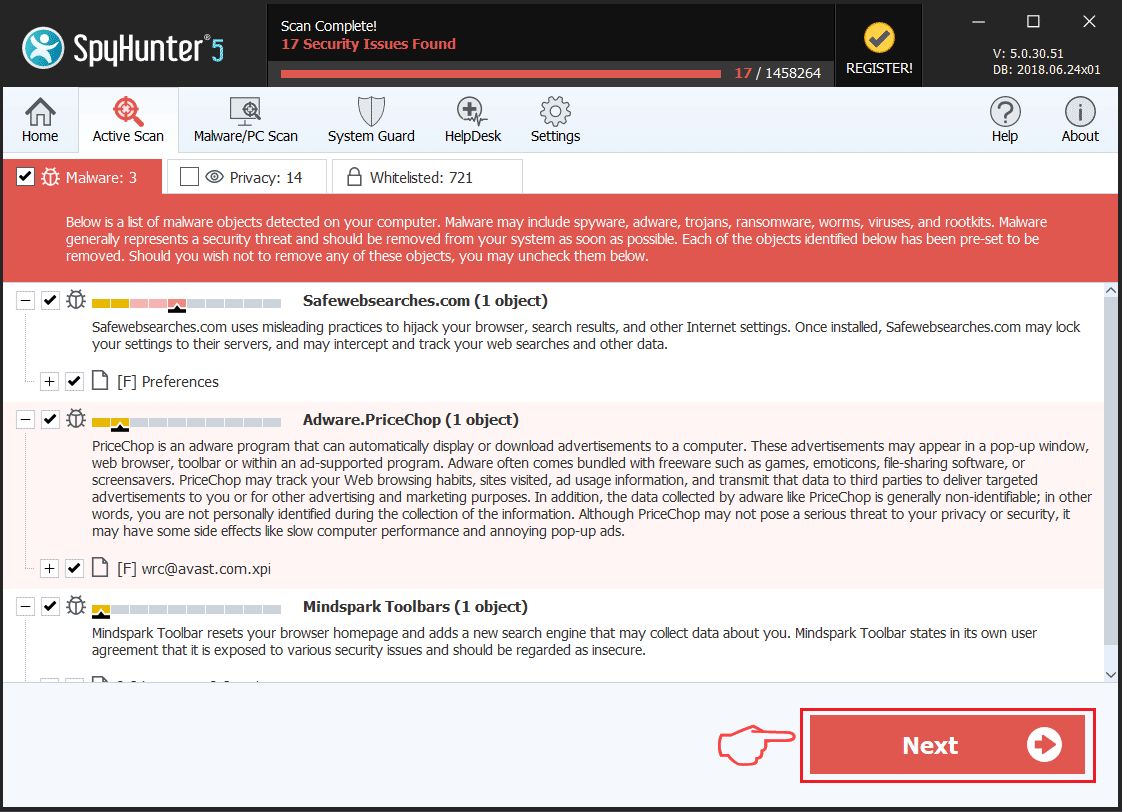
Step 2: Boot Your PC In Safe Mode

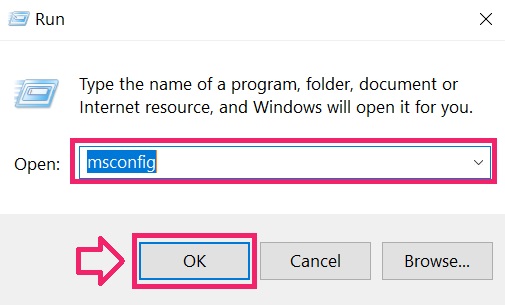
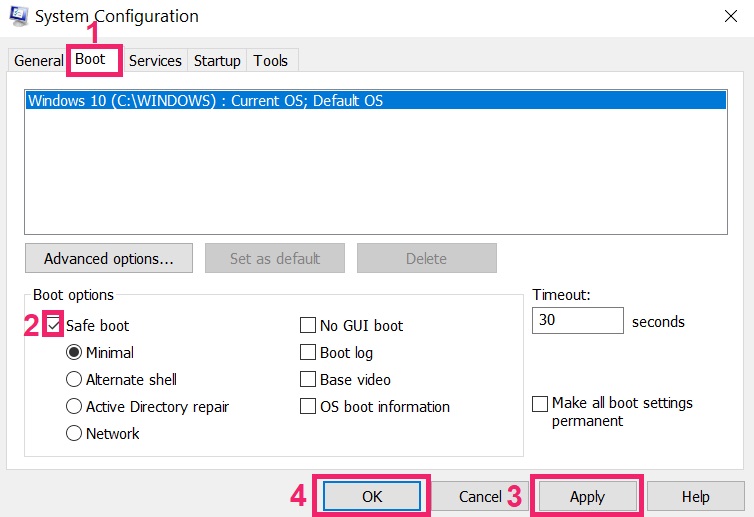
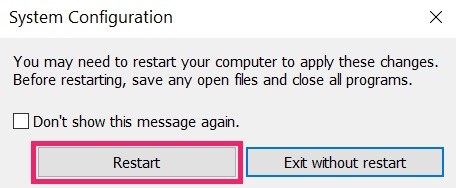
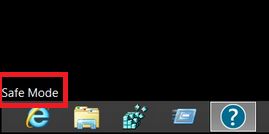
Step 3: Uninstall Core Sync and related software from Windows
Uninstall Steps for Windows 11
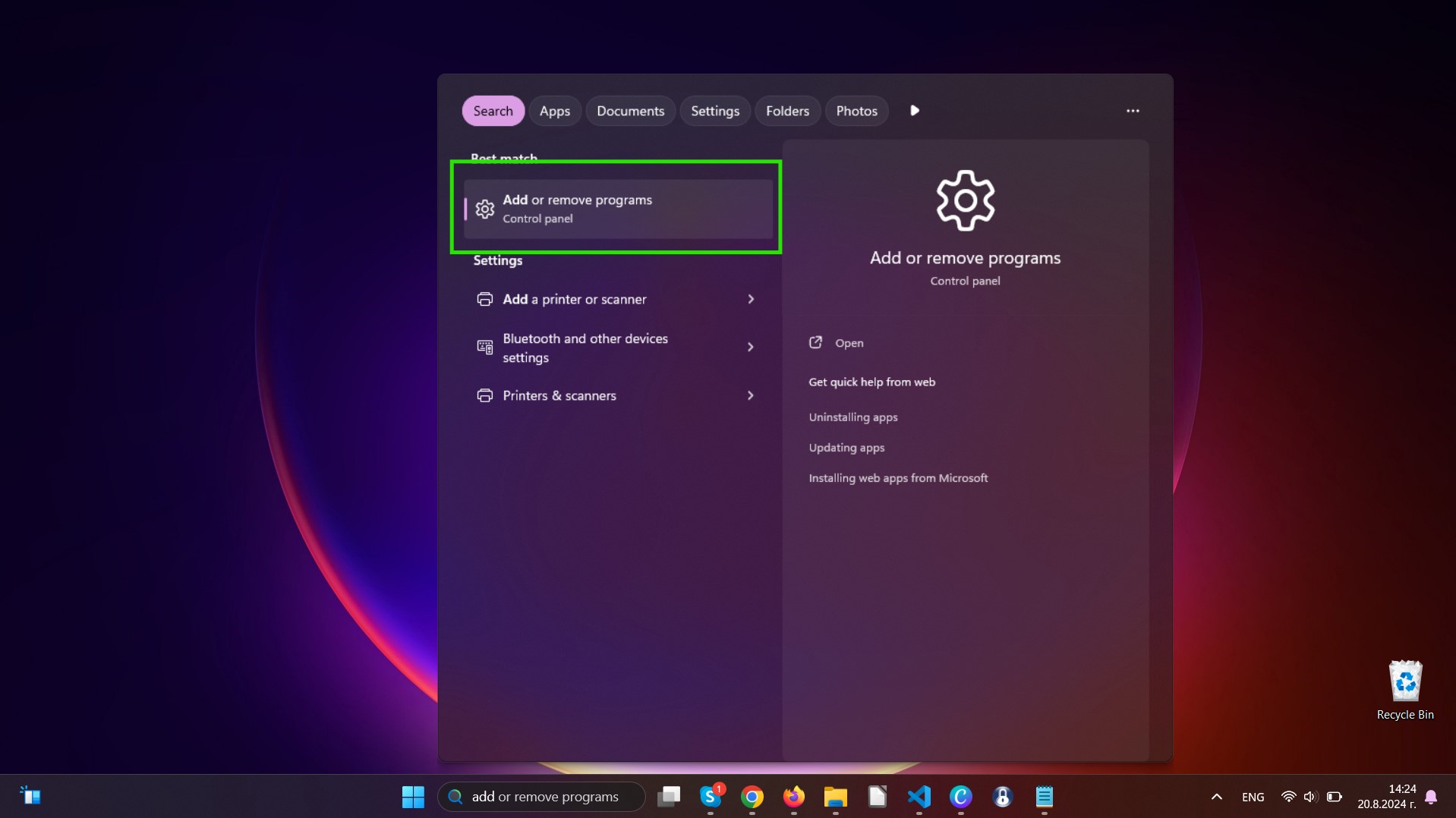
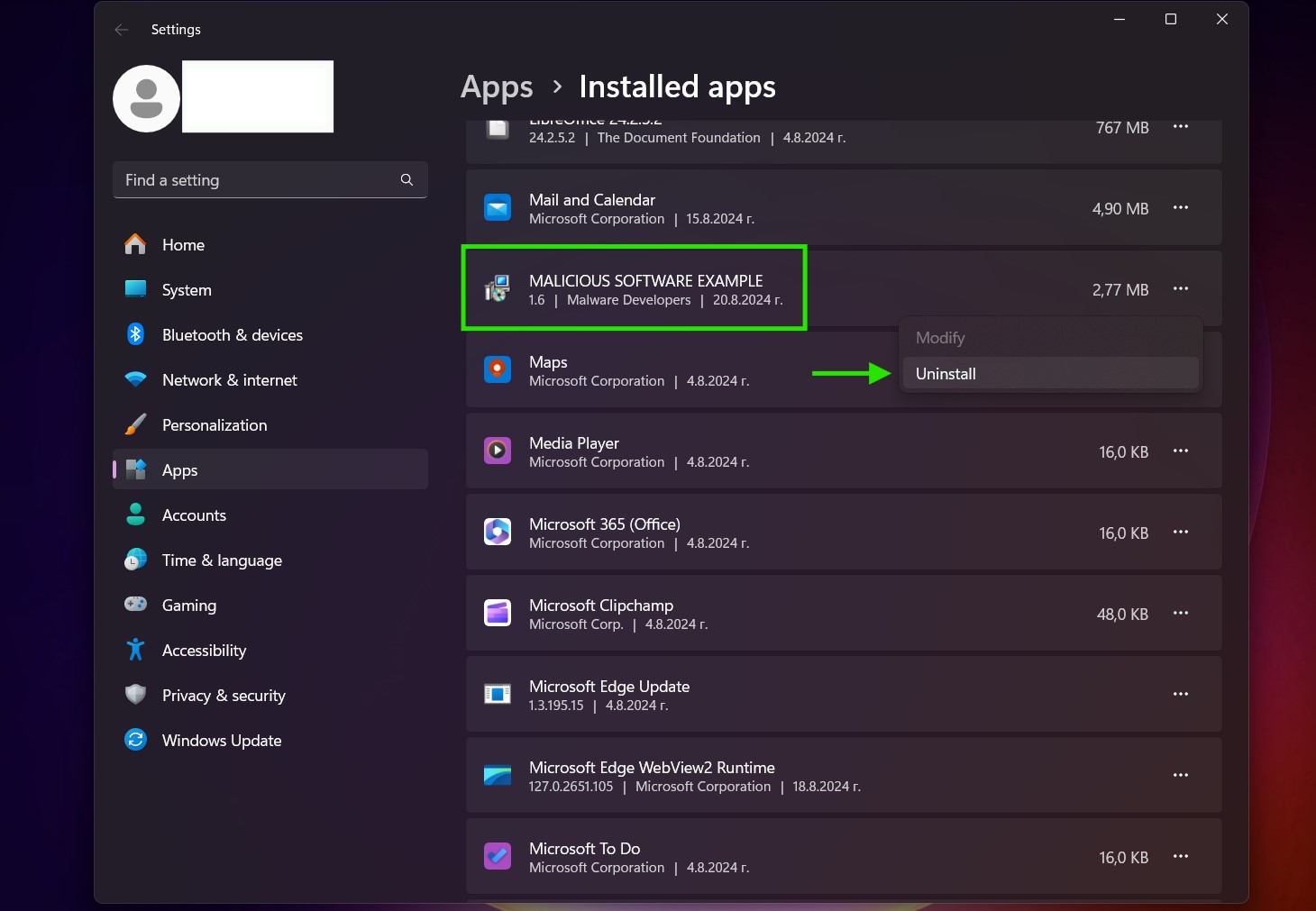
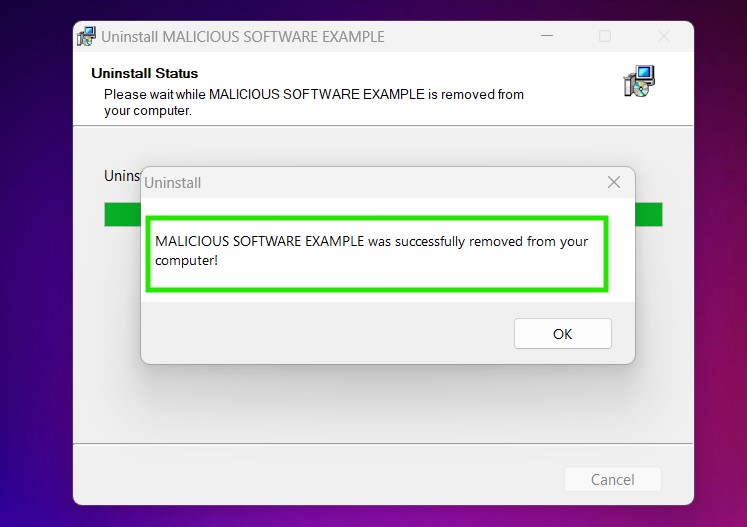
Uninstall Steps for Windows 10 and Older Versions
Here is a method in few easy steps that should be able to uninstall most programs. No matter if you are using Windows 10, 8, 7, Vista or XP, those steps will get the job done. Dragging the program or its folder to the recycle bin can be a very bad decision. If you do that, bits and pieces of the program are left behind, and that can lead to unstable work of your PC, errors with the file type associations and other unpleasant activities. The proper way to get a program off your computer is to Uninstall it. To do that:

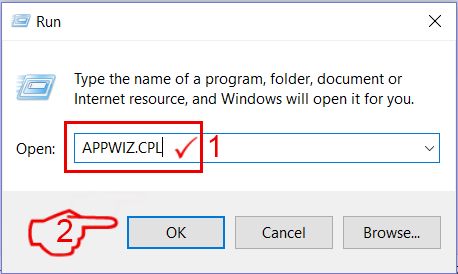
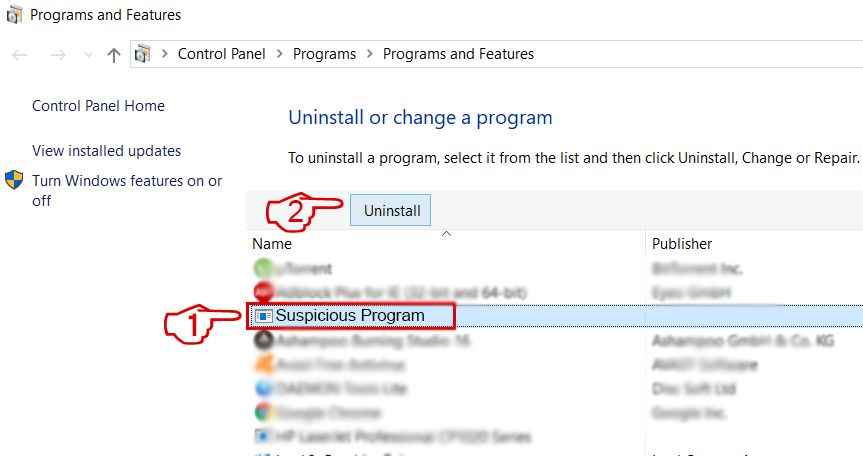 Follow the instructions above and you will successfully uninstall most programs.
Follow the instructions above and you will successfully uninstall most programs.
Step 4: Clean Any registries, Created by Core Sync on Your PC.
The usually targeted registries of Windows machines are the following:
- HKEY_LOCAL_MACHINE\Software\Microsoft\Windows\CurrentVersion\Run
- HKEY_CURRENT_USER\Software\Microsoft\Windows\CurrentVersion\Run
- HKEY_LOCAL_MACHINE\Software\Microsoft\Windows\CurrentVersion\RunOnce
- HKEY_CURRENT_USER\Software\Microsoft\Windows\CurrentVersion\RunOnce
You can access them by opening the Windows registry editor and deleting any values, created by Core Sync there. This can happen by following the steps underneath:
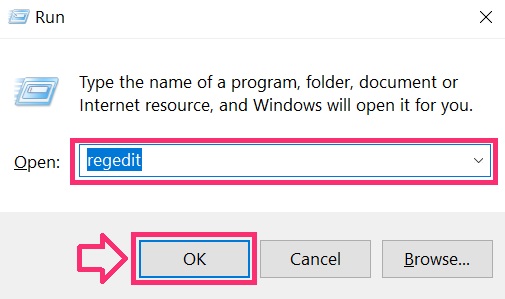

 Tip: To find a virus-created value, you can right-click on it and click "Modify" to see which file it is set to run. If this is the virus file location, remove the value.
Tip: To find a virus-created value, you can right-click on it and click "Modify" to see which file it is set to run. If this is the virus file location, remove the value.
Video Removal Guide for Core Sync (Windows).
Get rid of Core Sync from Mac OS X.
Step 1: Uninstall Core Sync and remove related files and objects
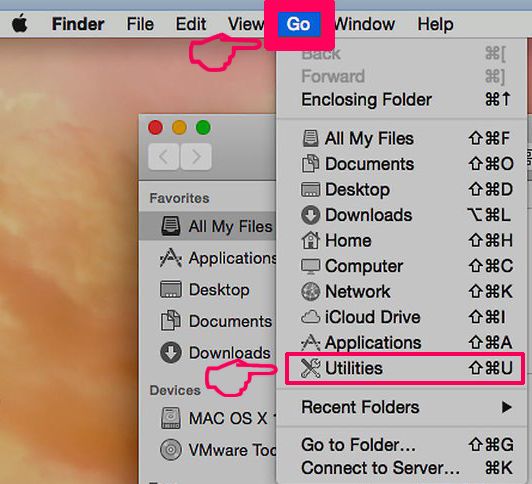
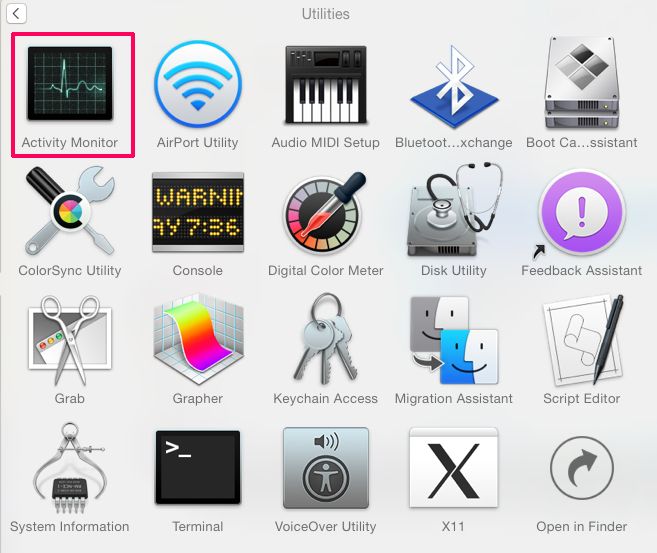
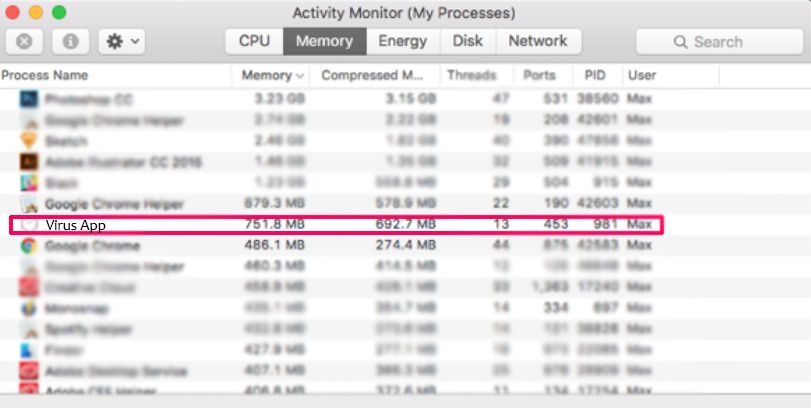
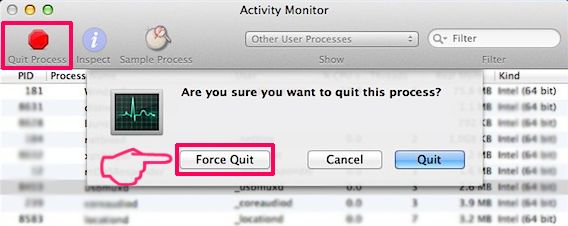
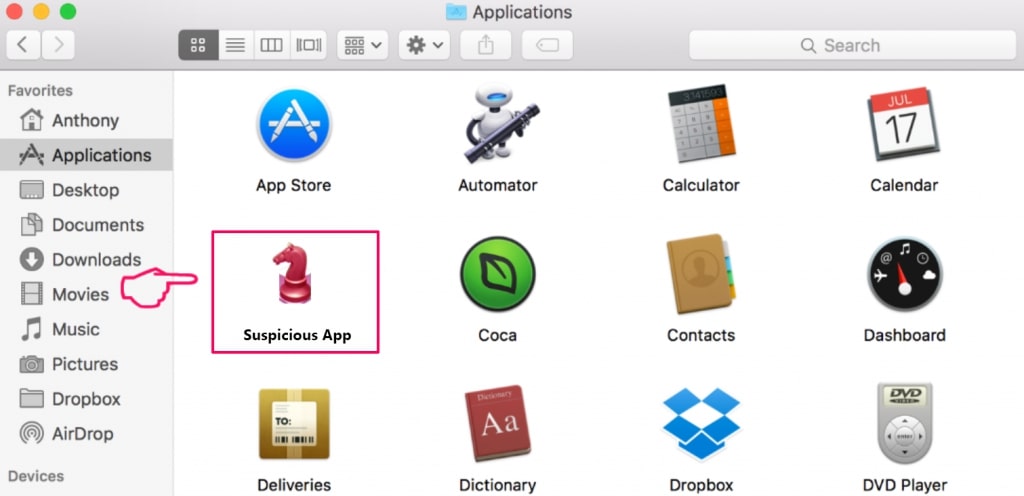
Your Mac will then show you a list of items that start automatically when you log in. Look for any suspicious apps identical or similar to Core Sync. Check the app you want to stop from running automatically and then select on the Minus (“-“) icon to hide it.
- Go to Finder.
- In the search bar type the name of the app that you want to remove.
- Above the search bar change the two drop down menus to “System Files” and “Are Included” so that you can see all of the files associated with the application you want to remove. Bear in mind that some of the files may not be related to the app so be very careful which files you delete.
- If all of the files are related, hold the ⌘+A buttons to select them and then drive them to “Trash”.
In case you cannot remove Core Sync via Step 1 above:
In case you cannot find the virus files and objects in your Applications or other places we have shown above, you can manually look for them in the Libraries of your Mac. But before doing this, please read the disclaimer below:
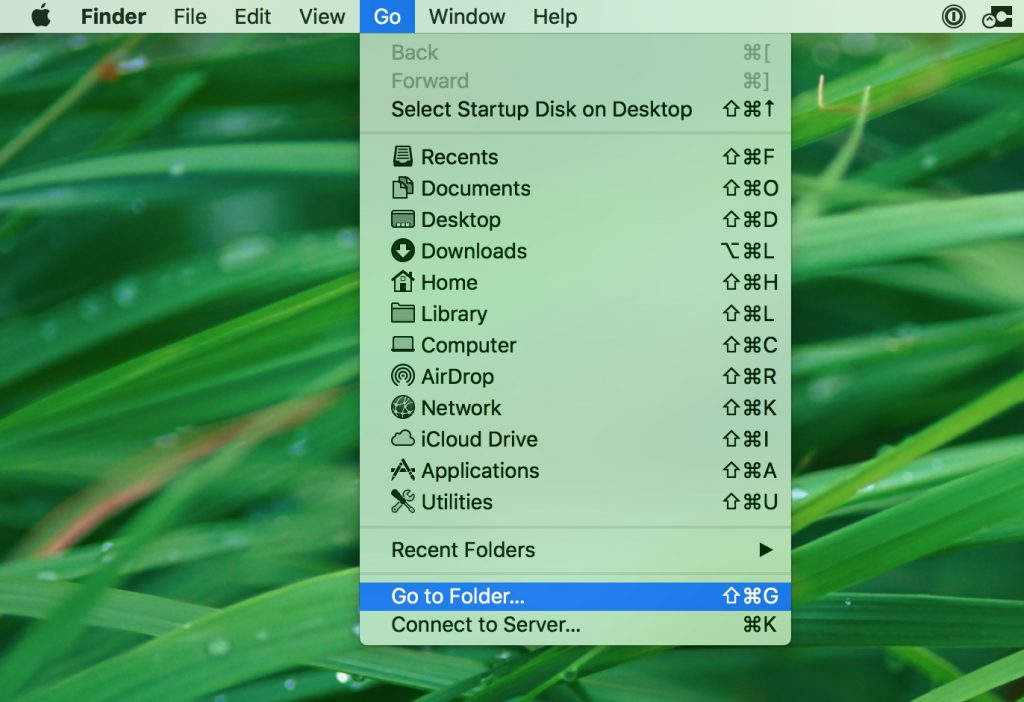

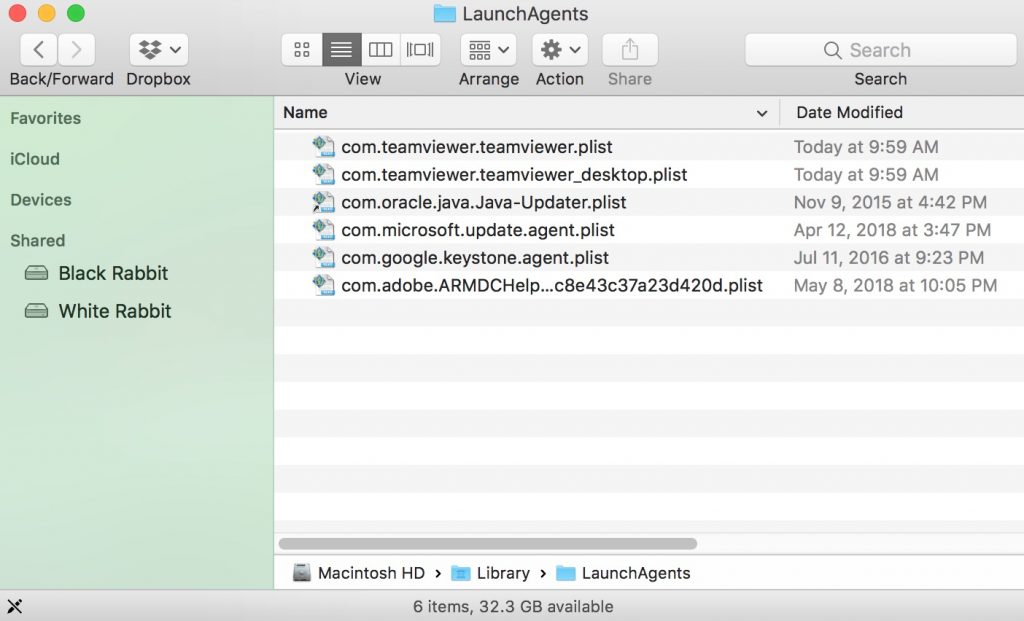
You can repeat the same procedure with the following other Library directories:
→ ~/Library/LaunchAgents
/Library/LaunchDaemons
Tip: ~ is there on purpose, because it leads to more LaunchAgents.
Step 2: Scan for and remove Core Sync files from your Mac
When you are facing problems on your Mac as a result of unwanted scripts and programs such as Core Sync, the recommended way of eliminating the threat is by using an anti-malware program. SpyHunter for Mac offers advanced security features along with other modules that will improve your Mac’s security and protect it in the future.
Video Removal Guide for Core Sync (Mac)
Remove Core Sync from Google Chrome.
Step 1: Start Google Chrome and open the drop menu
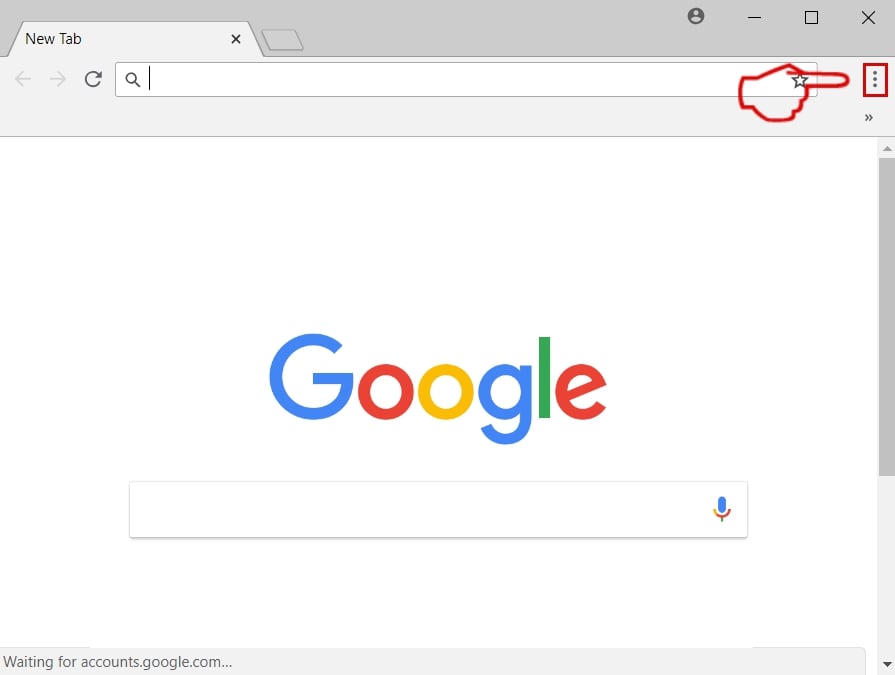
Step 2: Move the cursor over "Tools" and then from the extended menu choose "Extensions"
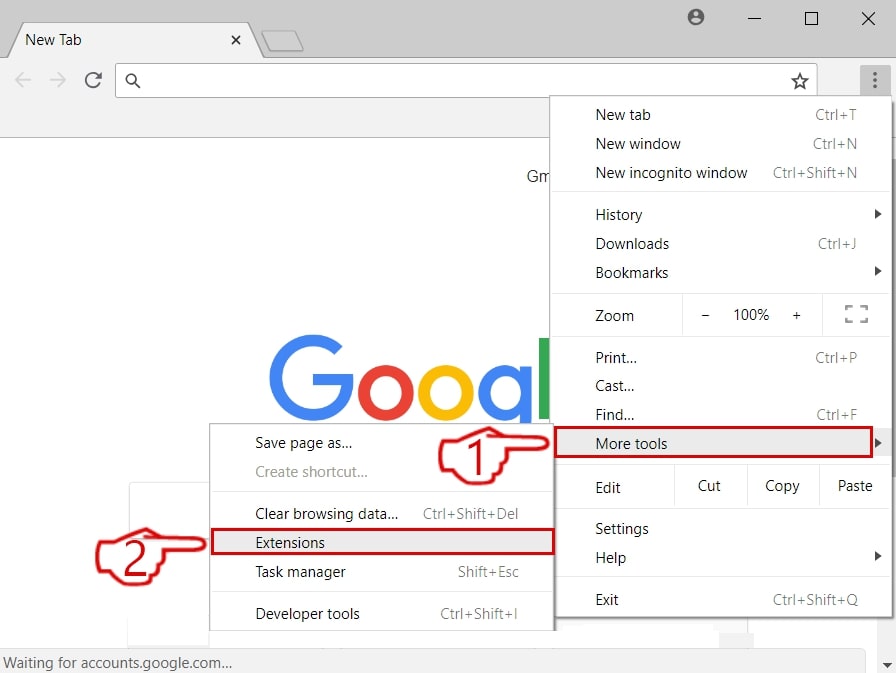
Step 3: From the opened "Extensions" menu locate the unwanted extension and click on its "Remove" button.
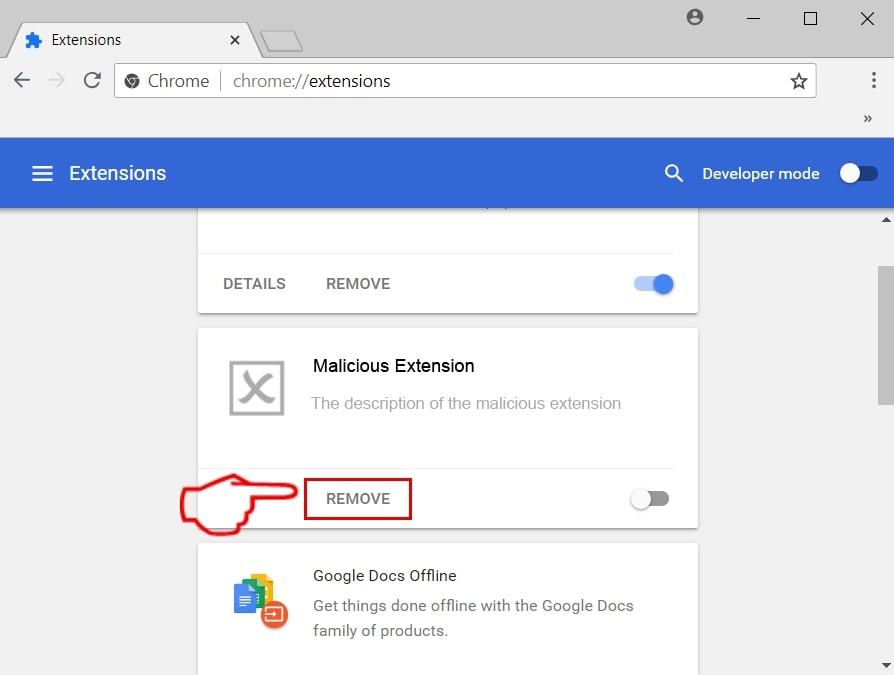
Step 4: After the extension is removed, restart Google Chrome by closing it from the red "X" button at the top right corner and start it again.
Erase Core Sync from Mozilla Firefox.
Step 1: Start Mozilla Firefox. Open the menu window:
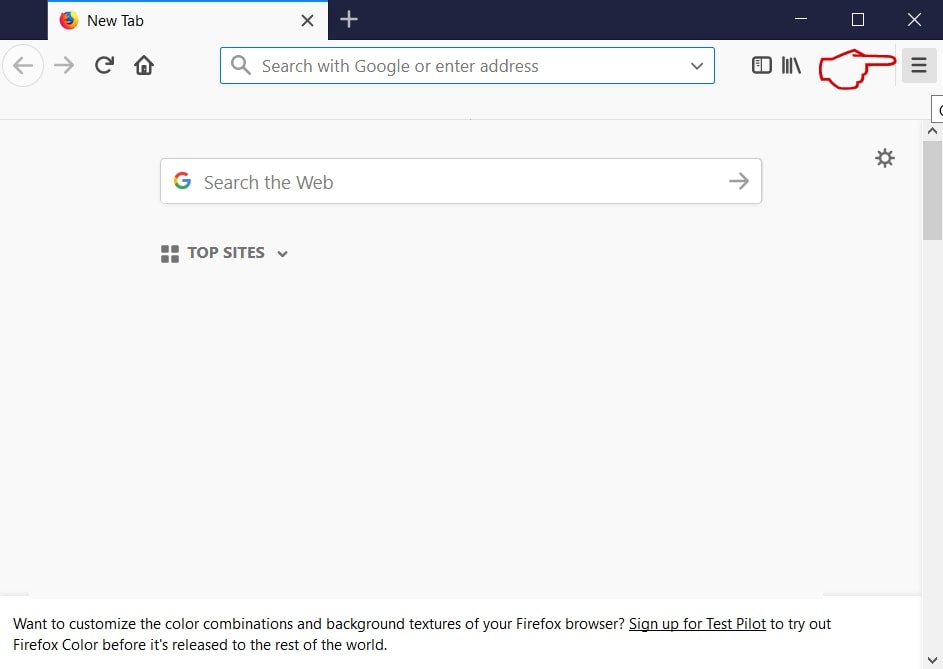
Step 2: Select the "Add-ons" icon from the menu.
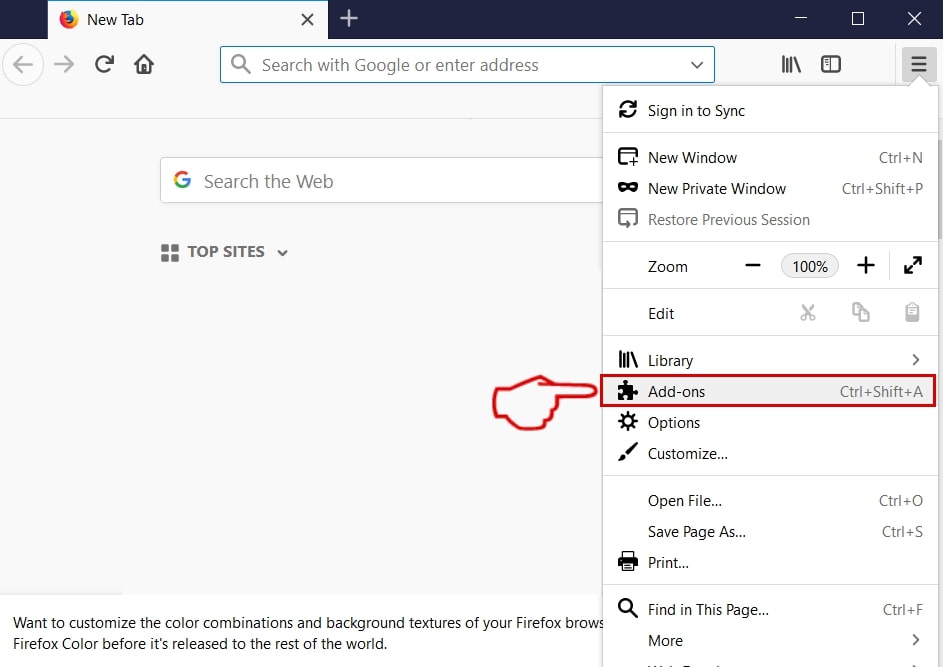
Step 3: Select the unwanted extension and click "Remove"

Step 4: After the extension is removed, restart Mozilla Firefox by closing it from the red "X" button at the top right corner and start it again.
Uninstall Core Sync from Microsoft Edge.
Step 1: Start Edge browser.
Step 2: Open the drop menu by clicking on the icon at the top right corner.

Step 3: From the drop menu select "Extensions".
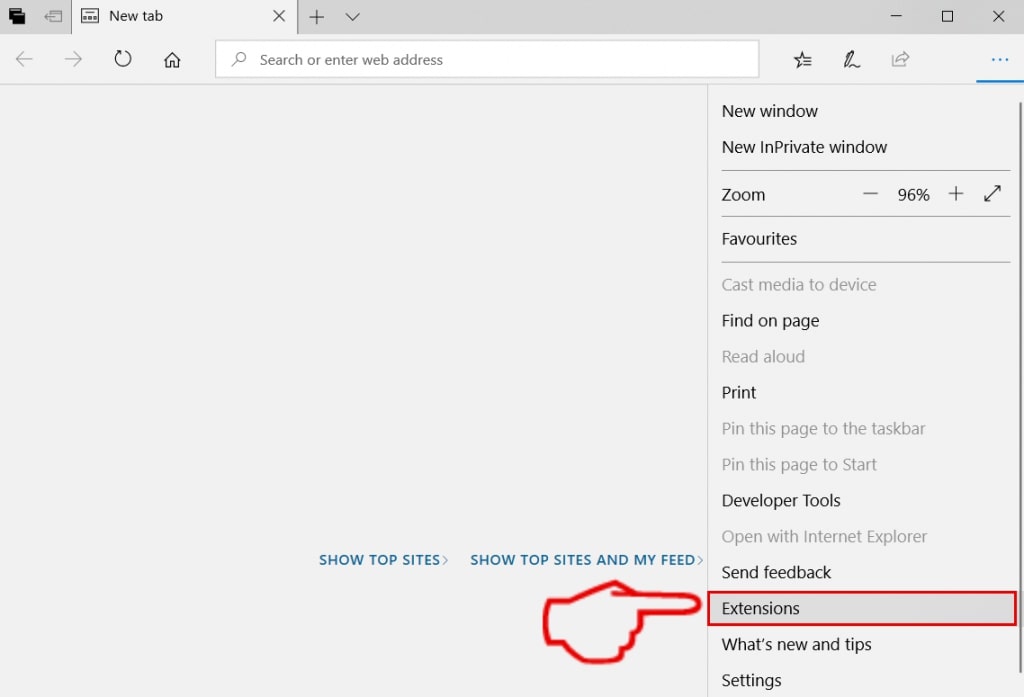
Step 4: Choose the suspected malicious extension you want to remove and then click on the gear icon.
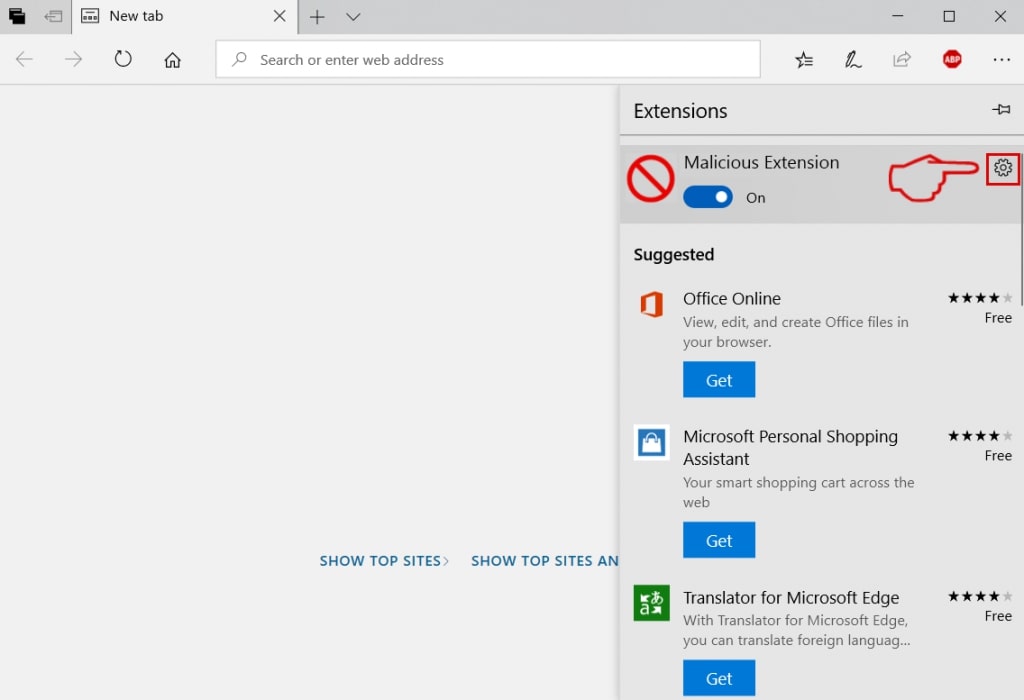
Step 5: Remove the malicious extension by scrolling down and then clicking on Uninstall.
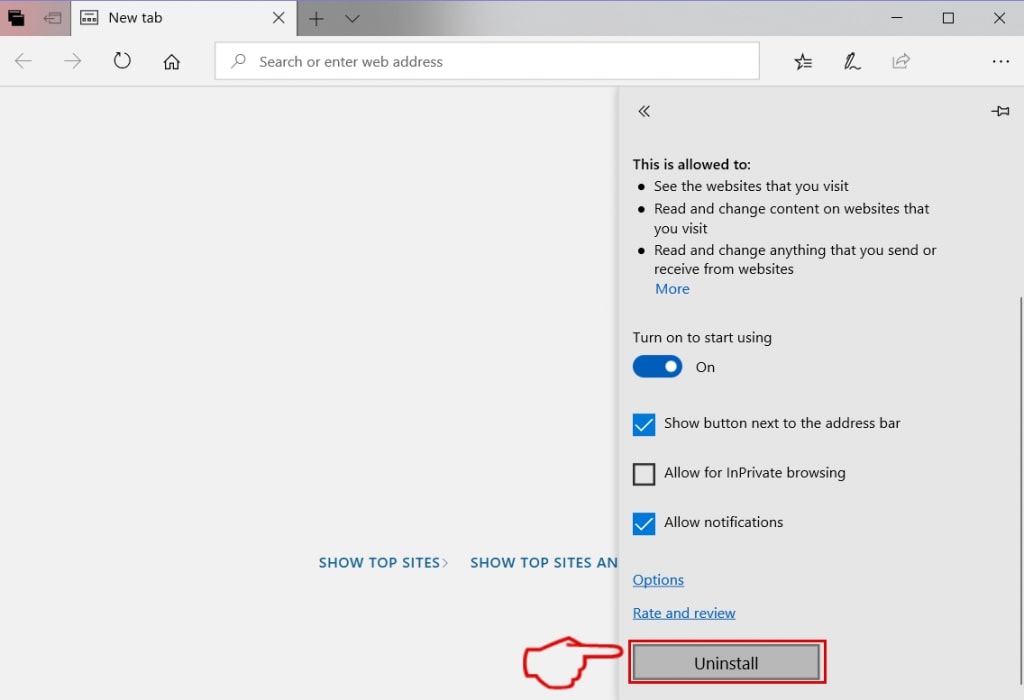
Remove Core Sync from Safari
Step 1: Start the Safari app.
Step 2: After hovering your mouse cursor to the top of the screen, click on the Safari text to open its drop down menu.
Step 3: From the menu, click on "Preferences".
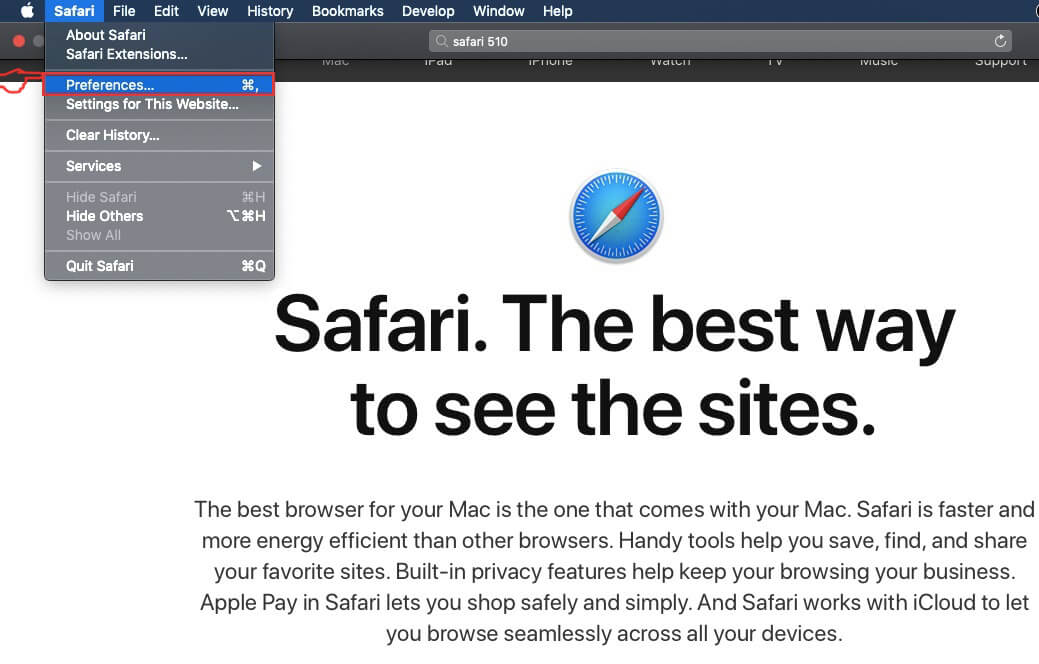
Step 4: After that, select the 'Extensions' Tab.

Step 5: Click once on the extension you want to remove.
Step 6: Click 'Uninstall'.
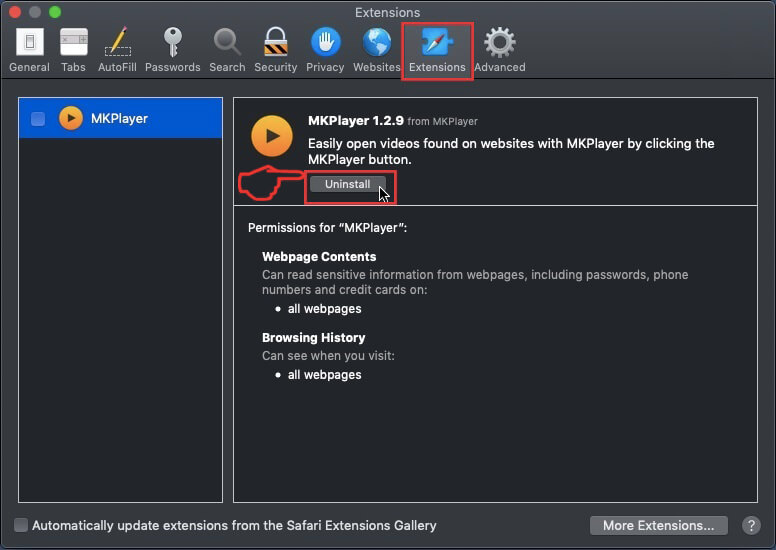
A pop-up window will appear asking for confirmation to uninstall the extension. Select 'Uninstall' again, and the Core Sync will be removed.
Eliminate Core Sync from Internet Explorer.
Step 1: Start Internet Explorer.
Step 2: Click on the gear icon labeled 'Tools' to open the drop menu and select 'Manage Add-ons'
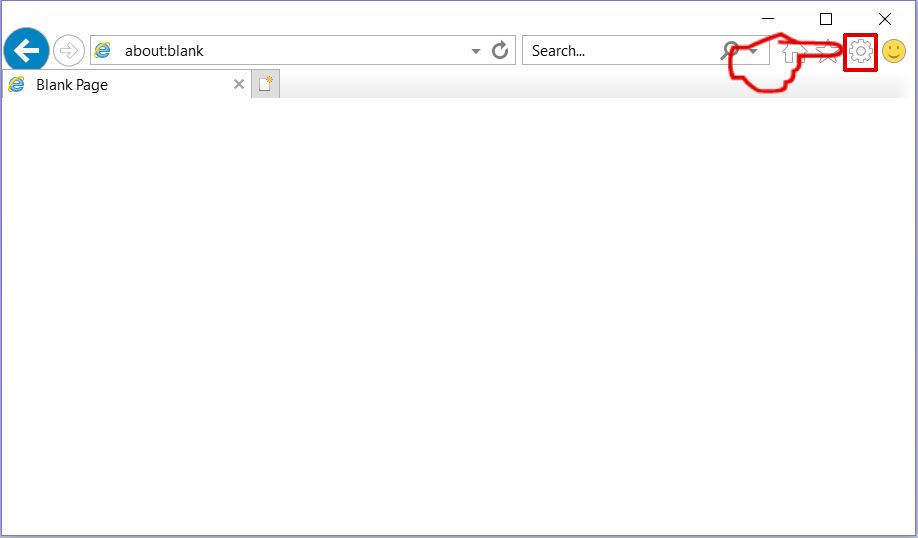
Step 3: In the 'Manage Add-ons' window.
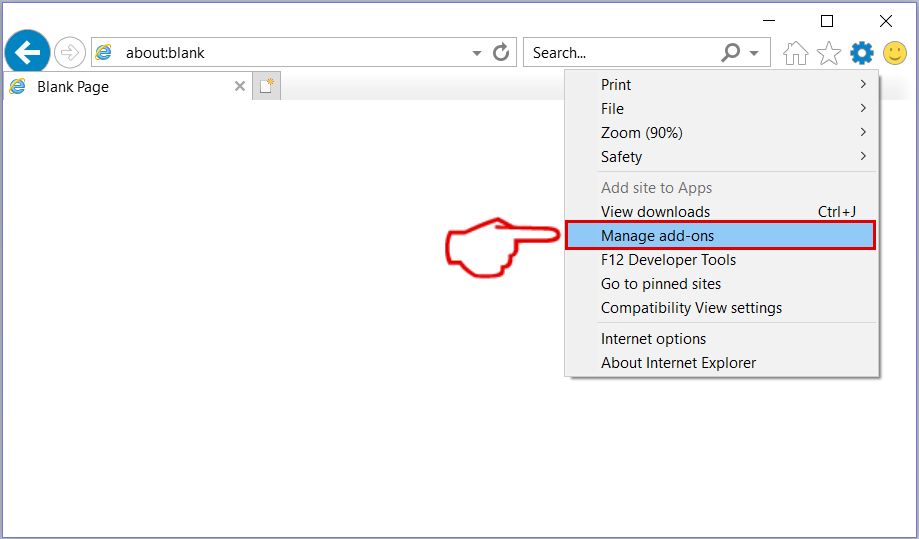
Step 4: Select the extension you want to remove and then click 'Disable'. A pop-up window will appear to inform you that you are about to disable the selected extension, and some more add-ons might be disabled as well. Leave all the boxes checked, and click 'Disable'.
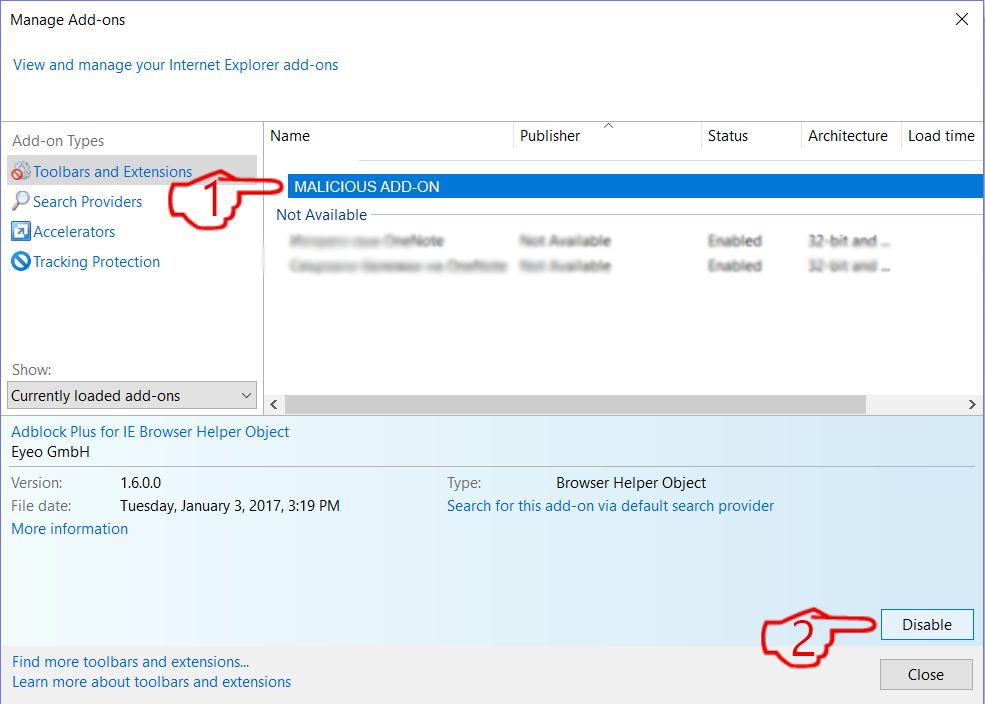
Step 5: After the unwanted extension has been removed, restart Internet Explorer by closing it from the red 'X' button located at the top right corner and start it again.
Remove Push Notifications from Your Browsers
Turn Off Push Notifications from Google Chrome
To disable any Push Notices from Google Chrome browser, please follow the steps below:
Step 1: Go to Settings in Chrome.
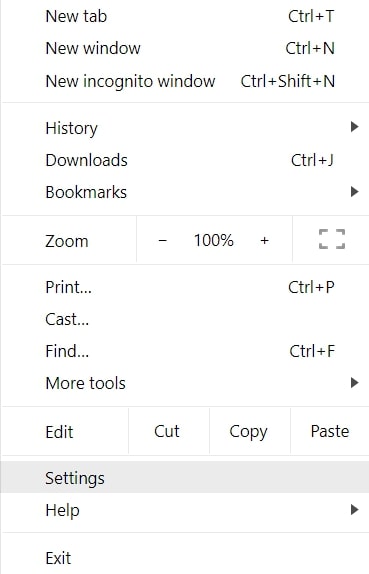
Step 2: In Settings, select “Advanced Settings”:
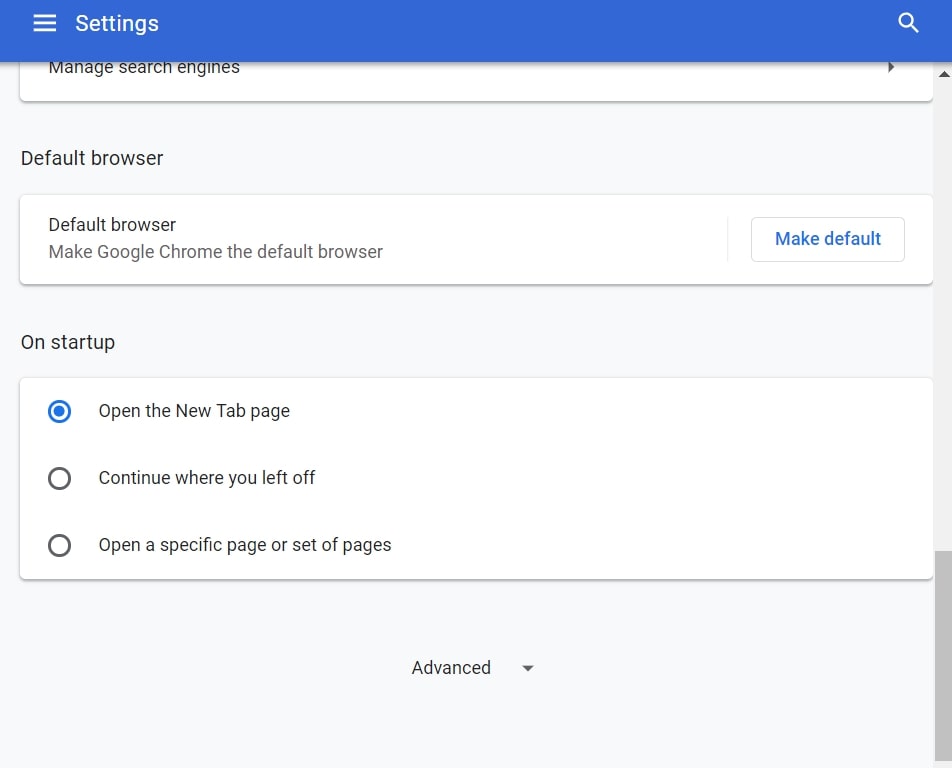
Step 3: Click “Content Settings”:
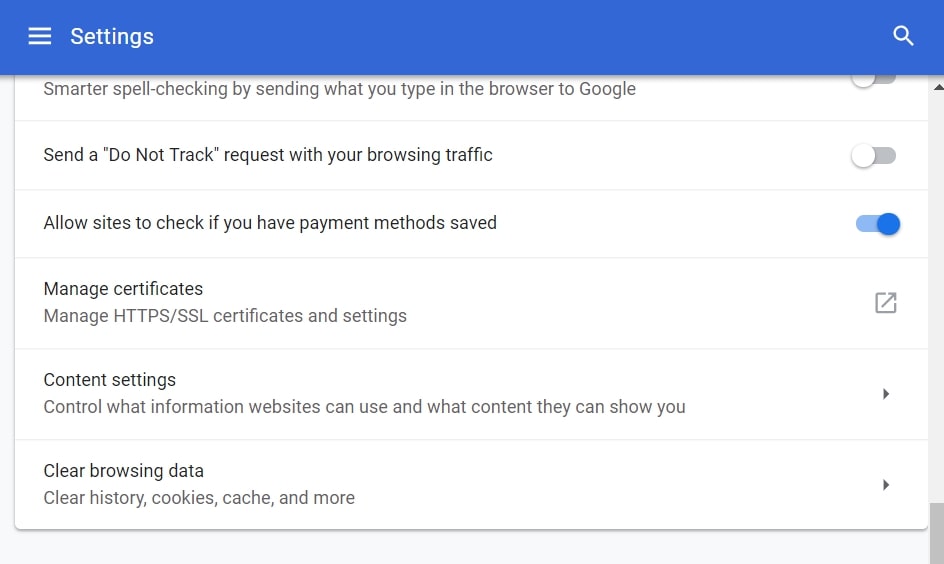
Step 4: Open “Notifications”:
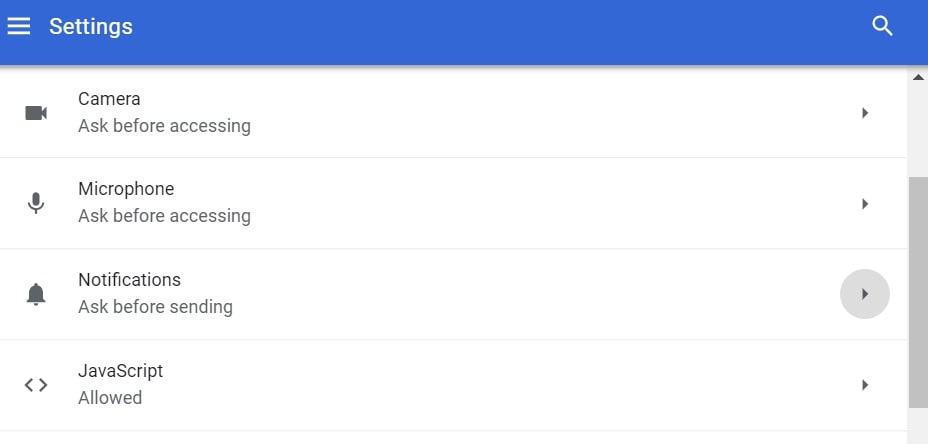
Step 5: Click the three dots and choose Block, Edit or Remove options:

Remove Push Notifications on Firefox
Step 1: Go to Firefox Options.
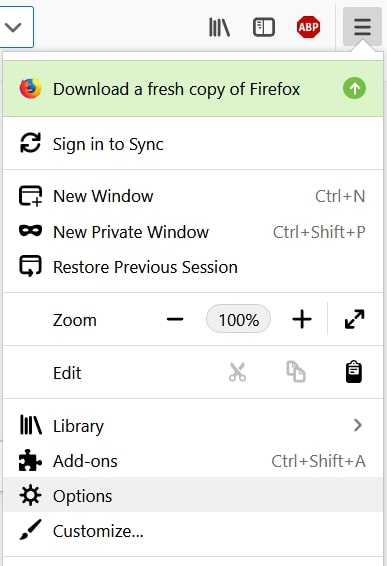
Step 2: Go to “Settings”, type “notifications” in the search bar and click "Settings":
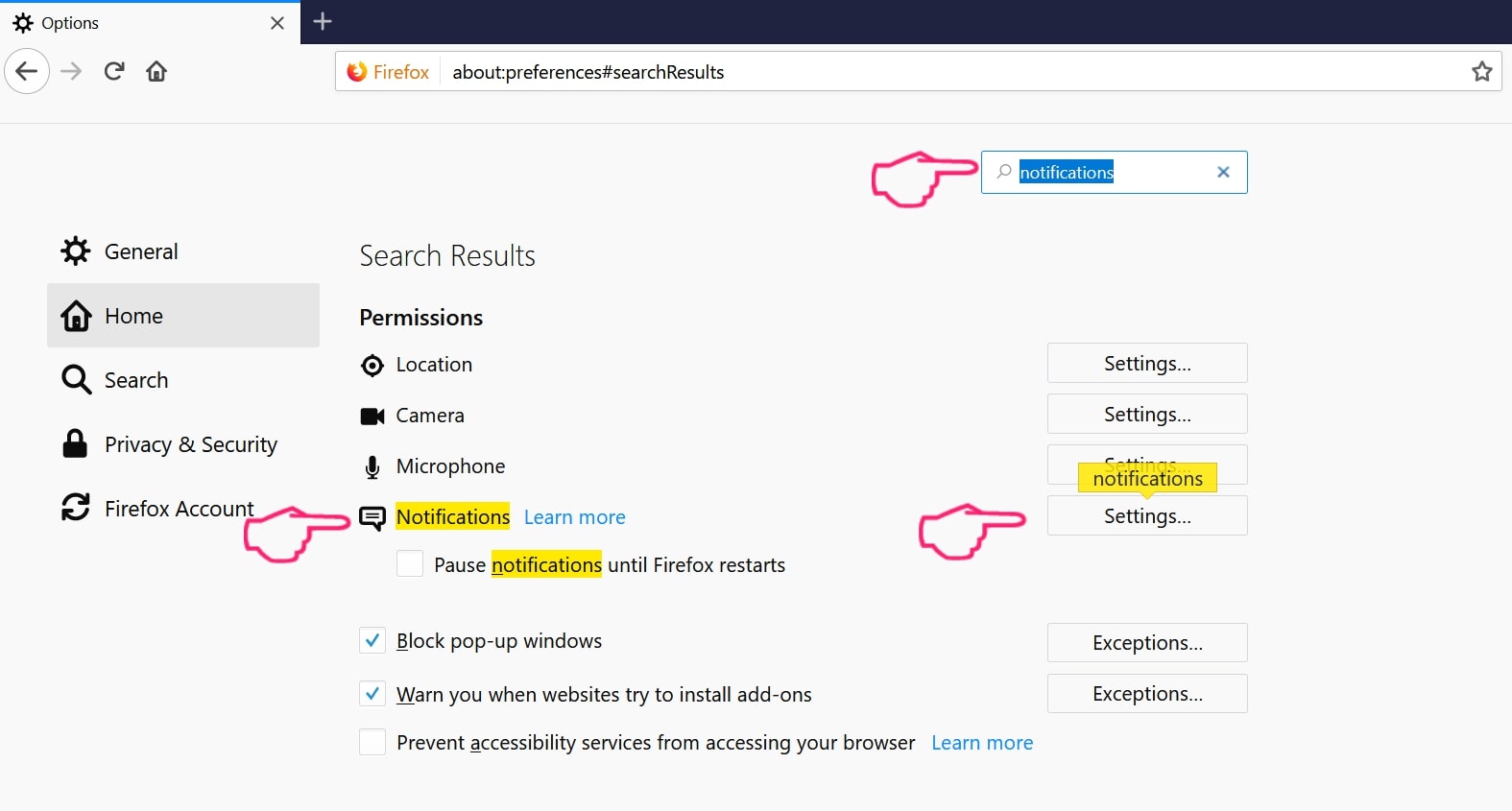
Step 3: Click “Remove” on any site you wish notifications gone and click “Save Changes”
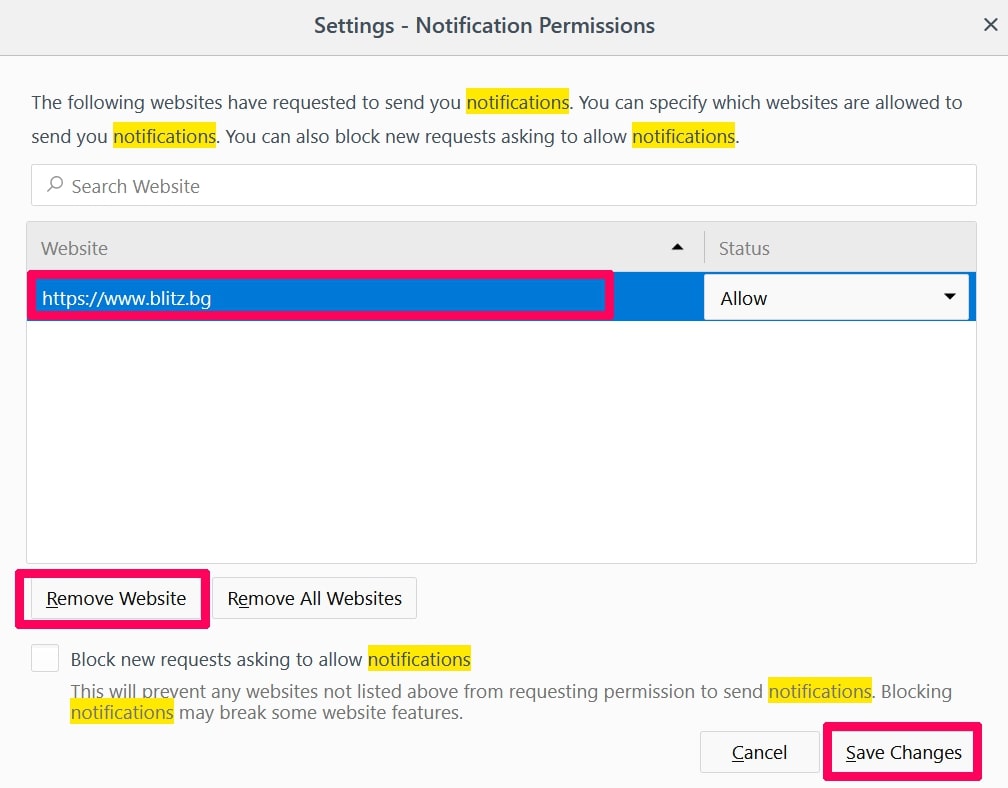
Stop Push Notifications on Opera
Step 1: In Opera, press ALT+P to go to Settings.

Step 2: In Setting search, type “Content” to go to Content Settings.
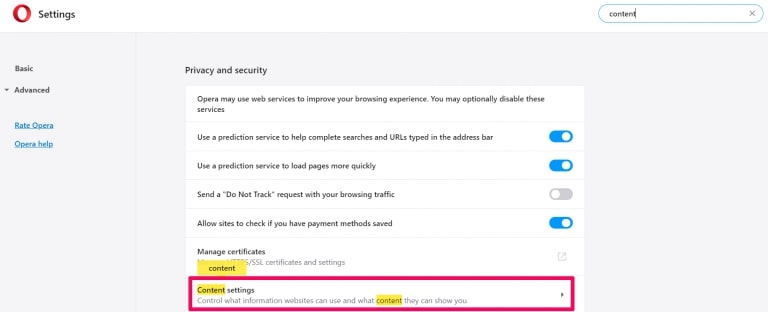
Step 3: Open Notifications:
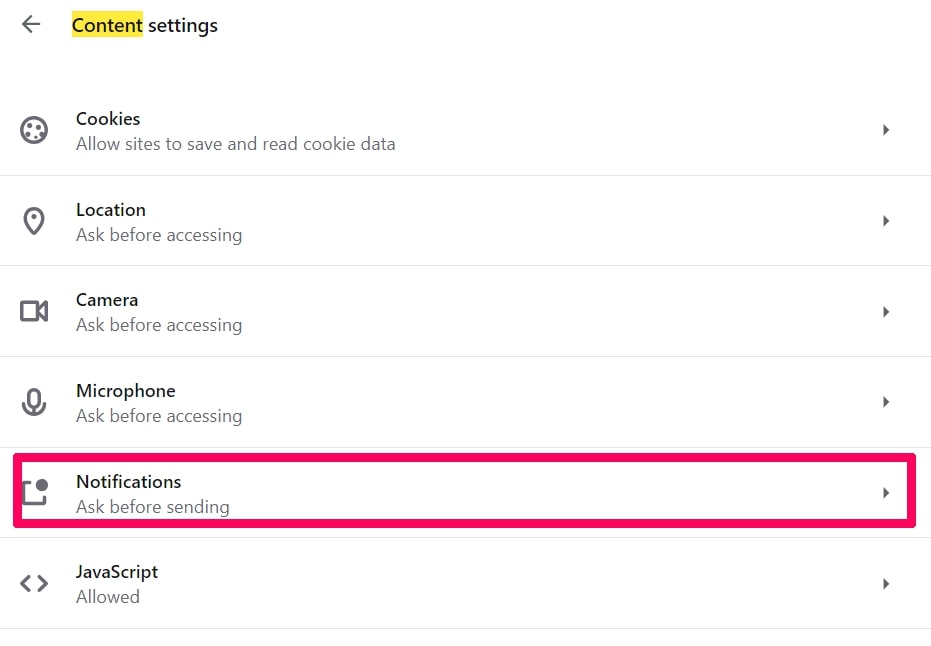
Step 4: Do the same as you did with Google Chrome (explained below):
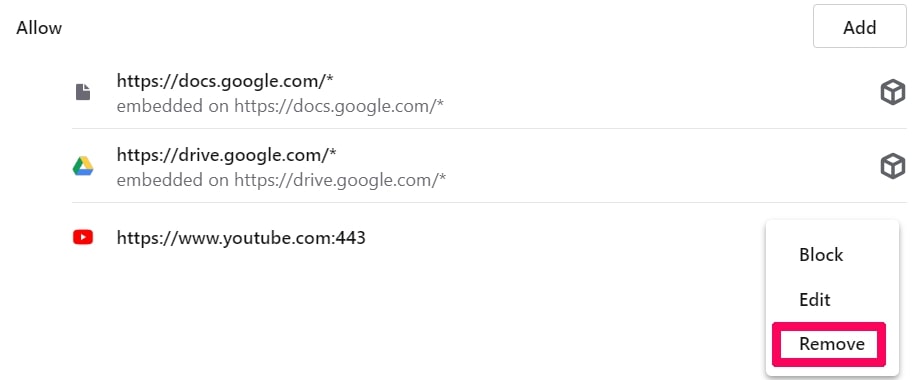
Eliminate Push Notifications on Safari
Step 1: Open Safari Preferences.
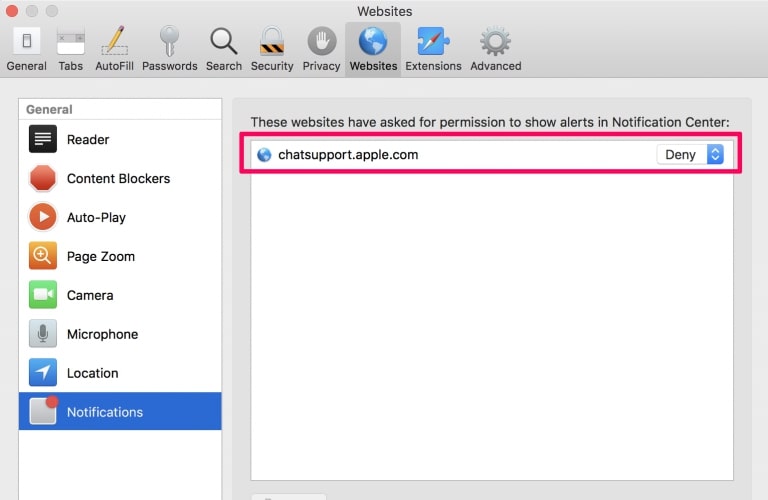
Step 2: Choose the domain from where you like push pop-ups gone and change to "Deny" from "Allow".
Core Sync-FAQ
What Is Core Sync?
The Core Sync threat is adware or browser redirect virus.
It may slow your computer down significantly and display advertisements. The main idea is for your information to likely get stolen or more ads to appear on your device.
The creators of such unwanted apps work with pay-per-click schemes to get your computer to visit risky or different types of websites that may generate them funds. This is why they do not even care what types of websites show up on the ads. This makes their unwanted software indirectly risky for your OS.
What Are the Symptoms of Core Sync?
There are several symptoms to look for when this particular threat and also unwanted apps in general are active:
Symptom #1: Your computer may become slow and have poor performance in general.
Symptom #2: You have toolbars, add-ons or extensions on your web browsers that you don't remember adding.
Symptom #3: You see all types of ads, like ad-supported search results, pop-ups and redirects to randomly appear.
Symptom #4: You see installed apps on your Mac running automatically and you do not remember installing them.
Symptom #5: You see suspicious processes running in your Task Manager.
If you see one or more of those symptoms, then security experts recommend that you check your computer for viruses.
What Types of Unwanted Programs Are There?
According to most malware researchers and cyber-security experts, the threats that can currently affect your device can be rogue antivirus software, adware, browser hijackers, clickers, fake optimizers and any forms of PUPs.
What to Do If I Have a "virus" like Core Sync?
With few simple actions. First and foremost, it is imperative that you follow these steps:
Step 1: Find a safe computer and connect it to another network, not the one that your Mac was infected in.
Step 2: Change all of your passwords, starting from your email passwords.
Step 3: Enable two-factor authentication for protection of your important accounts.
Step 4: Call your bank to change your credit card details (secret code, etc.) if you have saved your credit card for online shopping or have done online activities with your card.
Step 5: Make sure to call your ISP (Internet provider or carrier) and ask them to change your IP address.
Step 6: Change your Wi-Fi password.
Step 7: (Optional): Make sure to scan all of the devices connected to your network for viruses and repeat these steps for them if they are affected.
Step 8: Install anti-malware software with real-time protection on every device you have.
Step 9: Try not to download software from sites you know nothing about and stay away from low-reputation websites in general.
If you follow these recommendations, your network and all devices will become significantly more secure against any threats or information invasive software and be virus free and protected in the future too.
How Does Core Sync Work?
Once installed, Core Sync can collect data using trackers. This data is about your web browsing habits, such as the websites you visit and the search terms you use. It is then used to target you with ads or to sell your information to third parties.
Core Sync can also download other malicious software onto your computer, such as viruses and spyware, which can be used to steal your personal information and show risky ads, that may redirect to virus sites or scams.
Is Core Sync Malware?
The truth is that PUPs (adware, browser hijackers) are not viruses, but may be just as dangerous since they may show you and redirect you to malware websites and scam pages.
Many security experts classify potentially unwanted programs as malware. This is because of the unwanted effects that PUPs can cause, such as displaying intrusive ads and collecting user data without the user’s knowledge or consent.
About the Core Sync Research
The content we publish on SensorsTechForum.com, this Core Sync how-to removal guide included, is the outcome of extensive research, hard work and our team’s devotion to help you remove the specific, adware-related problem, and restore your browser and computer system.
How did we conduct the research on Core Sync?
Please note that our research is based on independent investigation. We are in contact with independent security researchers, thanks to which we receive daily updates on the latest malware, adware, and browser hijacker definitions.
Furthermore, the research behind the Core Sync threat is backed with VirusTotal.
To better understand this online threat, please refer to the following articles which provide knowledgeable details.




Restarted in safe mode and now I can’t log in. None of my passwords works. As if I had no connection. Even with network on in safe mode. Thanks for blocking my pc you fucking shit